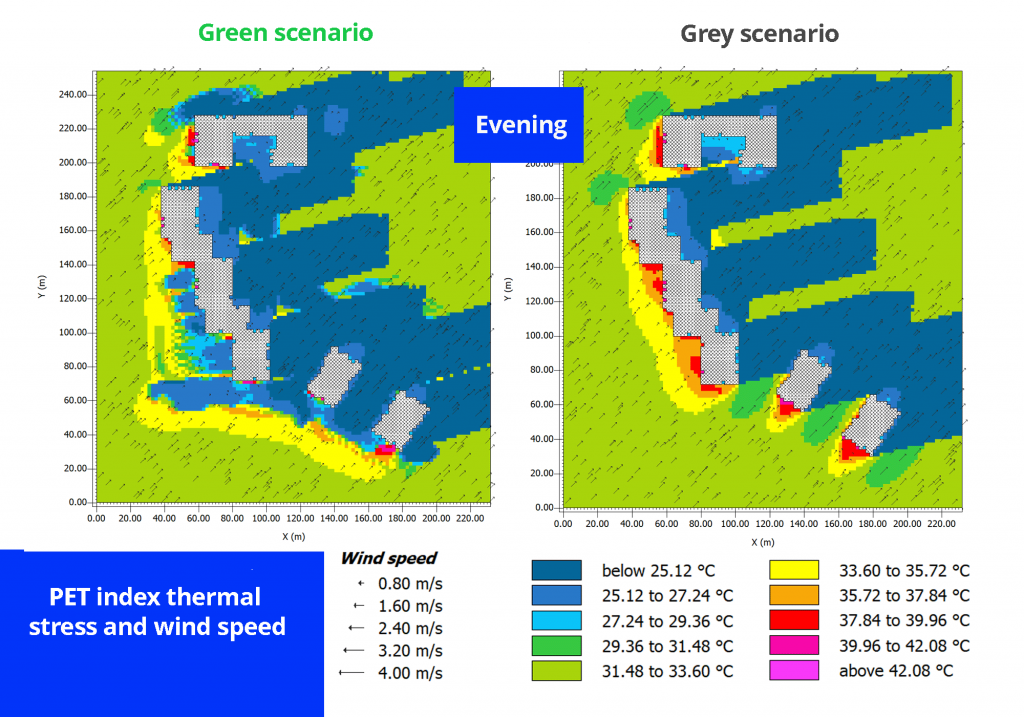Smart Urban Nature lab together with the Landscape Engineering Guild, has implemented a project to assess ecosystem services for one of Moscow’s residential complexes.
Moscow architectural bureau UTRO, whose specialists developed the concept of improvement for the residential complex “Metropolia”, strove for a reasonable balance between the purpose of the object, the needs of people and the environment. Thus, the main goal in developing the concept was to bring nature to the city center to create a comfortable living environment. With the proximity of major roads, the impact of the urban heat island, and the increasing number of extreme weather events associated with climate change, the regulatory functions of green infrastructure seem to be the most significant.
In the process of calculating ecosystem services, our experts were guided by the division of services according to their main functions: global climate regulation, microclimate regulation, water and pollution regulation. In turn, these groups were divided according to specific types of services – from managing carbon in soils, trees and lawns and regulating air temperature, wind load and comfort, to regulating water quantity, air quality and soil.
Particular attention was paid to the assessment of ecosystem services for woody vegetation. The project evaluated their four main functions – the absorption of carbon by trees from the air, evaporation of water by trees, the absorption of energy by trees, which provides cooling of the air and the adsorption of fine dust particles from the air. According to SUN Lab’s experts, all tree vegetation planted as part of the development of a residential complex plays a significant role in creating a comfortable living, absorbing up to 3 kilograms of dust per year, 3.5 tons of carbon during the period of tree maturation, removal or evaporation of up to 10 thousand liters of water in a year. It also should be noting that such efficient services provide not only financial benefits and a significant reduction in utility costs, but also in the future increase the level of health of the population, reducing the number of respiratory diseases, and, consequently, the costs of the local health care system for treating patients.
Also, experts carried out a detailed assessment of the ecosystem services of soil constructions, and their functions of water filtration and carbon sequestration. They gave recommendations on the selection of the most suitable soils in terms of composition and structure, and instructions for their care, which will ensure the most effective use.

Thus, the project for the assessment of ecosystem services for a residential complex showed that the largest contribution of ecosystem services is formed by regulating the microclimate and cleaning the air by green spaces. As a result of the project, the experts compiled a list of recommendations for managing each of the services to solve a specific problem – from reducing noise emissions to protecting against the ingress of polluted air.

